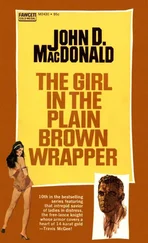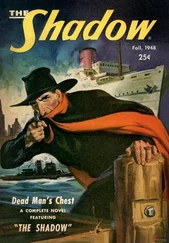John MacDonald - Slam the Big Door
Здесь есть возможность читать онлайн «John MacDonald - Slam the Big Door» весь текст электронной книги совершенно бесплатно (целиком полную версию без сокращений). В некоторых случаях можно слушать аудио, скачать через торрент в формате fb2 и присутствует краткое содержание. Город: Greenwich, Год выпуска: 1960, ISBN: 1960, Издательство: Fawcett Gold Medal, Жанр: Современная проза, на английском языке. Описание произведения, (предисловие) а так же отзывы посетителей доступны на портале библиотеки ЛибКат.
- Название:Slam the Big Door
- Автор:
- Издательство:Fawcett Gold Medal
- Жанр:
- Год:1960
- Город:Greenwich
- ISBN:978-0-449-13707-9
- Рейтинг книги:3 / 5. Голосов: 1
-
Избранное:Добавить в избранное
- Отзывы:
-
Ваша оценка:
- 60
- 1
- 2
- 3
- 4
- 5
Slam the Big Door: краткое содержание, описание и аннотация
Предлагаем к чтению аннотацию, описание, краткое содержание или предисловие (зависит от того, что написал сам автор книги «Slam the Big Door»). Если вы не нашли необходимую информацию о книге — напишите в комментариях, мы постараемся отыскать её.
Before the story is done, the pulse has run wild...
Slam the Big Door — читать онлайн бесплатно полную книгу (весь текст) целиком
Ниже представлен текст книги, разбитый по страницам. Система сохранения места последней прочитанной страницы, позволяет с удобством читать онлайн бесплатно книгу «Slam the Big Door», без необходимости каждый раз заново искать на чём Вы остановились. Поставьте закладку, и сможете в любой момент перейти на страницу, на которой закончили чтение.
Интервал:
Закладка:
He was twenty-three, and he had felt he couldn’t ever get any older or any wiser, and Micky had been in the world almost a month but the news hadn’t caught up. And he couldn’t seem to get enough sleep.
As one of the combat correspondents assigned to the First Marines, Rodenska had rated officer accommodations in the hospital just outside Melbourne, one bed in a twenty-bed ward, with windows to let in morning sun. It seemed appropriate that near the end of the year it was spring in south Australia. The whole world was screwed up that year.
There were all kinds in the ward, and some of them were very bad off, and on the third day when the major on his left died of his head injury without ever regaining consciousness, Second Lieutenant Troy Jamison was put in that bed. Nobody felt conversational. It was a kind of wariness. The dialogue, what there was of it, was inadvertent Hemingway. You really didn’t want anybody to detect how perfectly, wonderfully, overwhelmingly, goddamn glad you were to get off that island.
But when they were awake at the same time they picked up the essential information about each other. They were both twenty-three. Jamison was with the First. He’d got his field commission on the island. He felt uneasy about being an officer. He’d graduated from Syracuse University, and he’d been working in an advertising agency in Rochester when the war came along. He had a smashed shoulder. He was a big underweight blond, sallow skin pulled tight across high hard cheekbones, green eyes set slanty in his head.
Mike couldn’t remember seeing him on the island, but he had spent twelve days with Baker company of Jamison’s battalion, and that made a link. And he had spent six months on the Times-Union , so that made him familiar enough with Rochester to make a second link.
But Troy didn’t warm to him. Mike found he liked Jamison, and he knew the reason for the reserve. He knew he could break it down, but he didn’t want to sound like a horse’s ass while doing so. Finally, when he had his chance, he said, “I belong to the club, Lieutenant.”
“What do you mean?”
“I didn’t drop a typewriter on my foot. I had seventy-one days on that island, and the morning banzai meant work for everybody.”
So Troy had studied him and then given him a slow grin and said, “That’s against the Geneva convention, boy.”
“They didn’t give me a copy written in Jap. You’re not trade school anyhow. At heart you’re a crummy copywriter.”
So Troy had loosened up some and a little later, when Captain Irely arrived with a foot missing, and full of noisy lies about Fearless Rodenska, the poor man’s Pegler, Troy loosened up the rest of the way.
By the time they were permitted to draw a vehicle from the hospital pool for visits to Melbourne, they had become very close. They had both spent too much time with brave men who, if you tried to talk about a play, a book, a painting or a philosophy, would look at you with utter blankness which would crystallize to contempt. They told each other how many times they had come close to cracking. It took a little time before they could talk about the island. They got steaming drunk on Australian ale. Mike told Troy all about Buttons and how he met her and how she got her name. “It was kid stuff. Bring your hobby to school. She was maybe eight, and she collected buttons and brought them, hundreds of them, in a box to school and the bottom fell out of the box. Buttons all over hell. And the name stuck.” Troy admired the pictures of big-eyed Buttons and seemed to take almost as much pleasure in the pictures of Micky as Mike did.
Troy had a girl in Rochester. Her name was Bonita Chandler, called Bunny. They wrote faithfully. Troy said he was going to marry her, and he called himself a damn fool for not marrying her before he left, in spite of her parents’ opposition.
They talked about women in wartime, and how being unfaithful to girl or wife was so damn easy it was really a unique accomplishment to be true. Certainly unique in the Corps. But all that talk of virtue was before running into Marty and Liz. They were hearty, wholesome sisters of twenty-five and twenty-seven, with the typical buoyancy and easy laughter and sturdy bodies and bad teeth of most young Australian women. They were both from Broken Hill, and their men were in the African desert, and their kids — one belonging to Marty and two to Liz — were in Broken Hill with their parents while the girls did war work in Melbourne, clerical work connected with the port. They lived in a small apartment, and, on one Sunday afternoon, on their way to a date, they were energetically annoyed by two tipsy Marines in a small park. Troy put the fear of God into the Marines, and then the four of them sat in the park for a little while and talked, and then the Henderson sisters decided not to show up for their date and they all went back to the apartment.
They were two good-tempered healthy women lonely for their men, and they were two lonely men with more islands in their future. The arrangement lasted through the remainder of the hospital time, and through the rest of camp time, right up until they returned to duty, Mike first and, as he found out later, Troy two weeks later.
It was an indication of their special rapport that after the involvement with Marty and Liz had begun they did not talk with each other about either faithfulness or guilt. They accepted the situation. Troy had more time with the girls. Mike was by then writing color pieces on the Melbourne scene and wangling them through censorship, while Troy jeered at him, calling him a beaver.
On the night before Mike was returned to duty Marty’s tears dropped hot on his throat in the bedroom darkness, but not many and not for long. She cried without making a sound. He was back in Melbourne eight months later, but somebody else was in the apartment. They knew the girls had gone back to Broken Hill. The husband of one of them had been killed, but the couple in the apartment did not know which one.
In 1943, Mike got back to the States for three weeks, and when Tommy was born he was back in the islands, but that was 1944 and it was a different kind of war because by then you knew how it would end. You couldn’t be certain you’d live to see the end of it, but you did know how it would end. He knew he’d very probably see the end of it, barring some air-transport foul-up, because it was no longer necessary for him to prove to himself the things it had been important to prove in the beginning. He had learned that he could react adequately, though not brilliantly, to utter and desperate emergency. He had been to the well. And there was always a sameness about the well. And so he was able, without feeling any self-contempt, to start taking better care of the pitcher. And he had long since gotten over the juvenile affectation of trying to look like a combat type despite the correspondent insignia. It was the newcomers who had something to prove — more to themselves than to others. So he could prop up a bar, as neat as if he were on Pentagon duty, and be mildly and not unkindly amused by the hairy affectations of the new ones.
But he could not keep himself from taking childish pleasure in moments of inadvertent revelation.
Like at Naha, a couple of weeks before Hiroshima. He’d been at the officers’-club bar talking with two of them. He’d listened while they were being very profound about kami-kazis and island warfare. One was from a little string of Texas papers, the other from a slick magazine.
“You been out here long, son?” the fat one asked him.
“Quite a while.”
The thin one looked him over and said, “You’ll learn it’s a hell of a lot different than Stateside.”
“I guess it is,” Mike said. They wore helmet liners, canteens and trench knives.
Читать дальшеИнтервал:
Закладка:
Похожие книги на «Slam the Big Door»
Представляем Вашему вниманию похожие книги на «Slam the Big Door» списком для выбора. Мы отобрали схожую по названию и смыслу литературу в надежде предоставить читателям больше вариантов отыскать новые, интересные, ещё непрочитанные произведения.
Обсуждение, отзывы о книге «Slam the Big Door» и просто собственные мнения читателей. Оставьте ваши комментарии, напишите, что Вы думаете о произведении, его смысле или главных героях. Укажите что конкретно понравилось, а что нет, и почему Вы так считаете.












